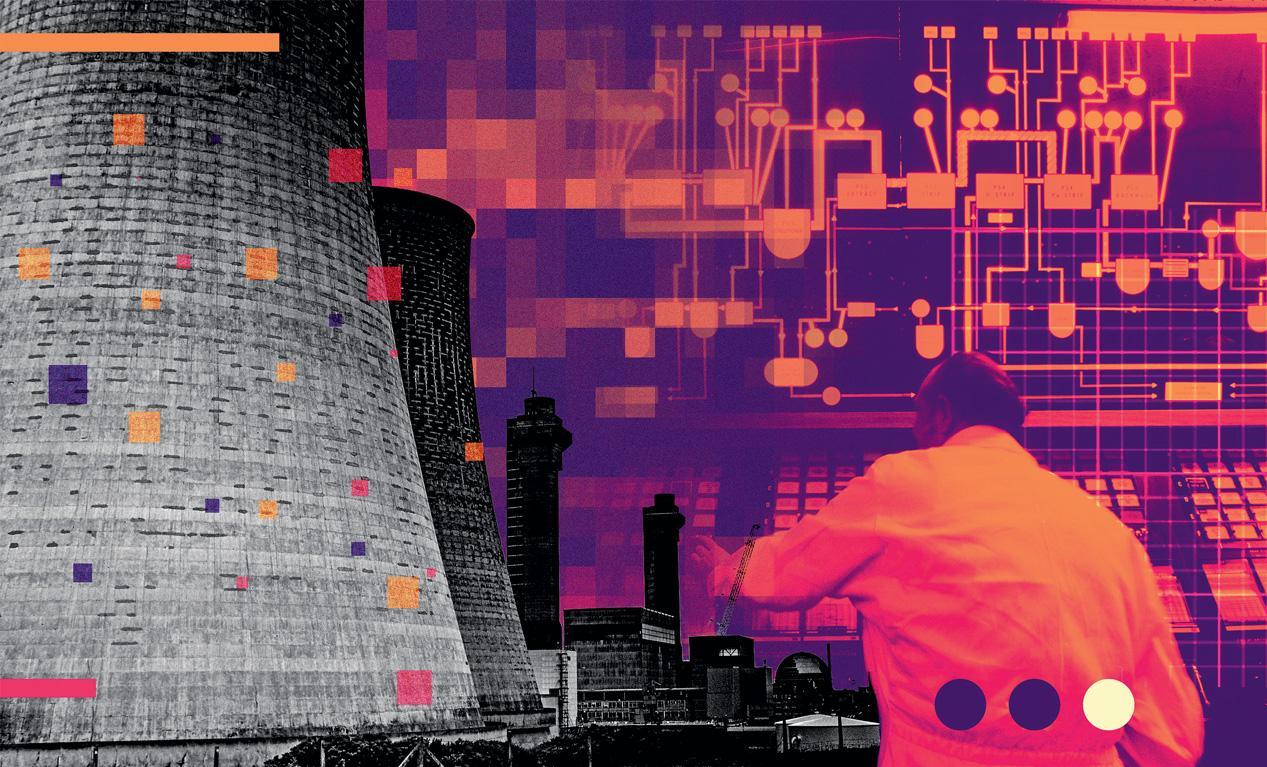
The UK's most hazardous nuclear site, Sellafield, has been hacked into by cyber groups closely linked to Russia and China, an investigation by the Guardian reveals.
The astonishing disclosure and its potential effects have been consistently covered up by senior staff at the vast nuclear waste and decommissioning site, the investigation found.
The Guardian has discovered that the authorities do not know exactly when the IT systems were first compromised. But sources said breaches were first detected as far back as 2015 when experts realized sleeper malware-software that can lurk and be used to spy or attack systems - had been embedded in Sellafield's computer networks.
It is still not known if the malware has been eradicated. It may mean some of Sellafield's most sensitive activities, such as moving radioactive waste, monitoring for leaks of dangerous material and checking for fires, have been compromised.
Sources suggest it is likely foreign hackers have accessed the highest echelons of confidential material at the site, which sprawls across 6 sq km on the Cumbrian coast.
The full extent of any data loss and any ongoing risks to systems was made harder to quantify by Sellafield's failure to alert nuclear regulators for several years, sources said.
The revelations have emerged in Nuclear Leaks, a year-long Guardian investigation into cyber hacking,
radioactive contamination and a toxic workplace culture at Sellafield.
The site has the largest store of plutonium on the planet and is a sprawling rubbish dump for nuclear waste from weapons programmes and decades of atomic power generation.
Denne historien er fra December 08, 2023-utgaven av The Guardian Weekly.
Start din 7-dagers gratis prøveperiode på Magzter GOLD for å få tilgang til tusenvis av utvalgte premiumhistorier og 9000+ magasiner og aviser.
Allerede abonnent ? Logg på
Denne historien er fra December 08, 2023-utgaven av The Guardian Weekly.
Start din 7-dagers gratis prøveperiode på Magzter GOLD for å få tilgang til tusenvis av utvalgte premiumhistorier og 9000+ magasiner og aviser.
Allerede abonnent? Logg på

Cutting a dash
Scissor Sisters are reuniting to celebrate 20 years since their debut album. They talk fans, Elton John and connecting with the UK's weird’ energy

How art led resistance to Pakistan's dictatorship
A dazzling exhibitionin Qatar reveals how the repressive regime of Zia-ul-Hag led prompted a powerfulcreative defiance

The death of the middleclass professional spells danger for Labour
What does it mean to have a middle-class, white-collar professional job?

I love travelling Europe by train, but a joined-up approach is needed
Last August, I took the train from Trieste to Ljubljana, following a route once used by the Orient Express.

How will 2025 turn out? The life of Jimmy Carter offers us a clue Jonathan Freedland
How will we look back on 2025? Or, if that seems too absurd a question to ponder just a few days into the new year, how might we view the first quarter of the 21st century? As it happens, the answer to both questions is the same and it was confirmed by an event that came as the old year faded and the new one began.

15 ways to overcome overwhelm
Readers and wellbeing experts share tips on corralling chaos and avoiding anxiety, from journalling to cherishing nature

Overwhelmed? Here's how to fix it
Modern life is exhausting. Here, Guardian writers explain what they have given up to make space in their schedules and lives from social media to makeup to news addiction. Then, readers and experts offer tips on how to navigate the demands and pressures we all face. First, Emine Saner examines why we are so overwhelmed

Seoul standoff Impeached president fights on despite arrest attempt
South Korean anticorruption officials attempting to arrest the country's suspended president, Yoon Suk Yeol, must know by now what he meant by his repeated vows to \"fight to the end\".

'Don't feed the troll': European leaders hit back at Musk
When the German chancellor, Olaf Scholz, was asked in an interview about the barrage of insults being directed at him and other German leaders by Elon Musk, the world's richest man, his reply was: \"Don't feed the troll.\"

History lessons The two steps that could stop societal collapse
Academic Danilo Brozović says studies of failed civilisations all point in one direction-the need for radical transformation to survive